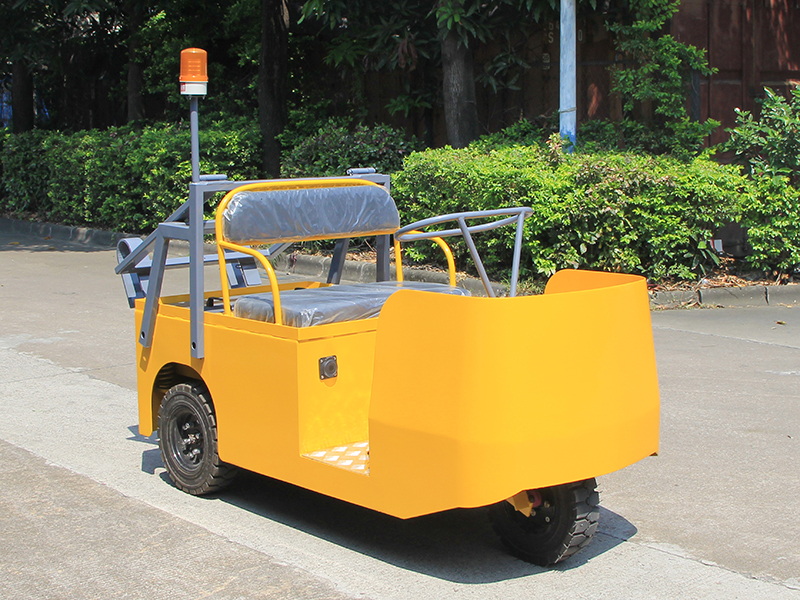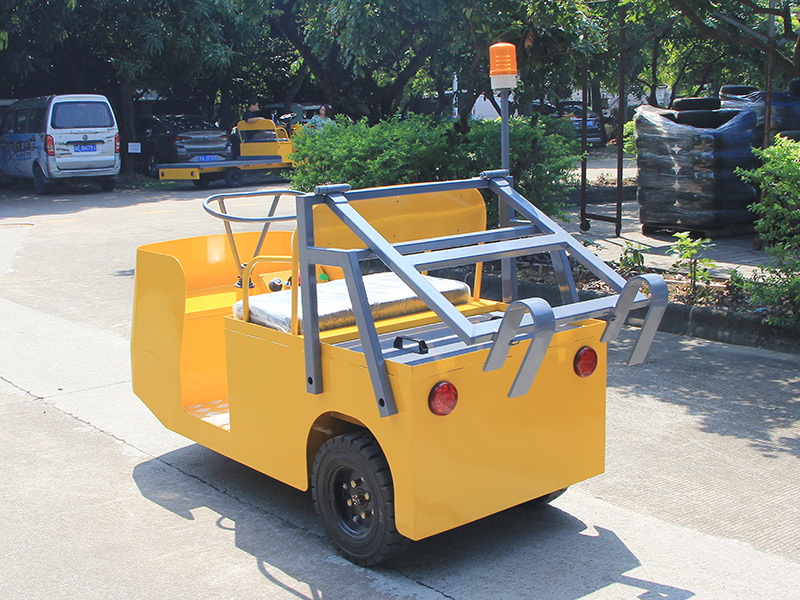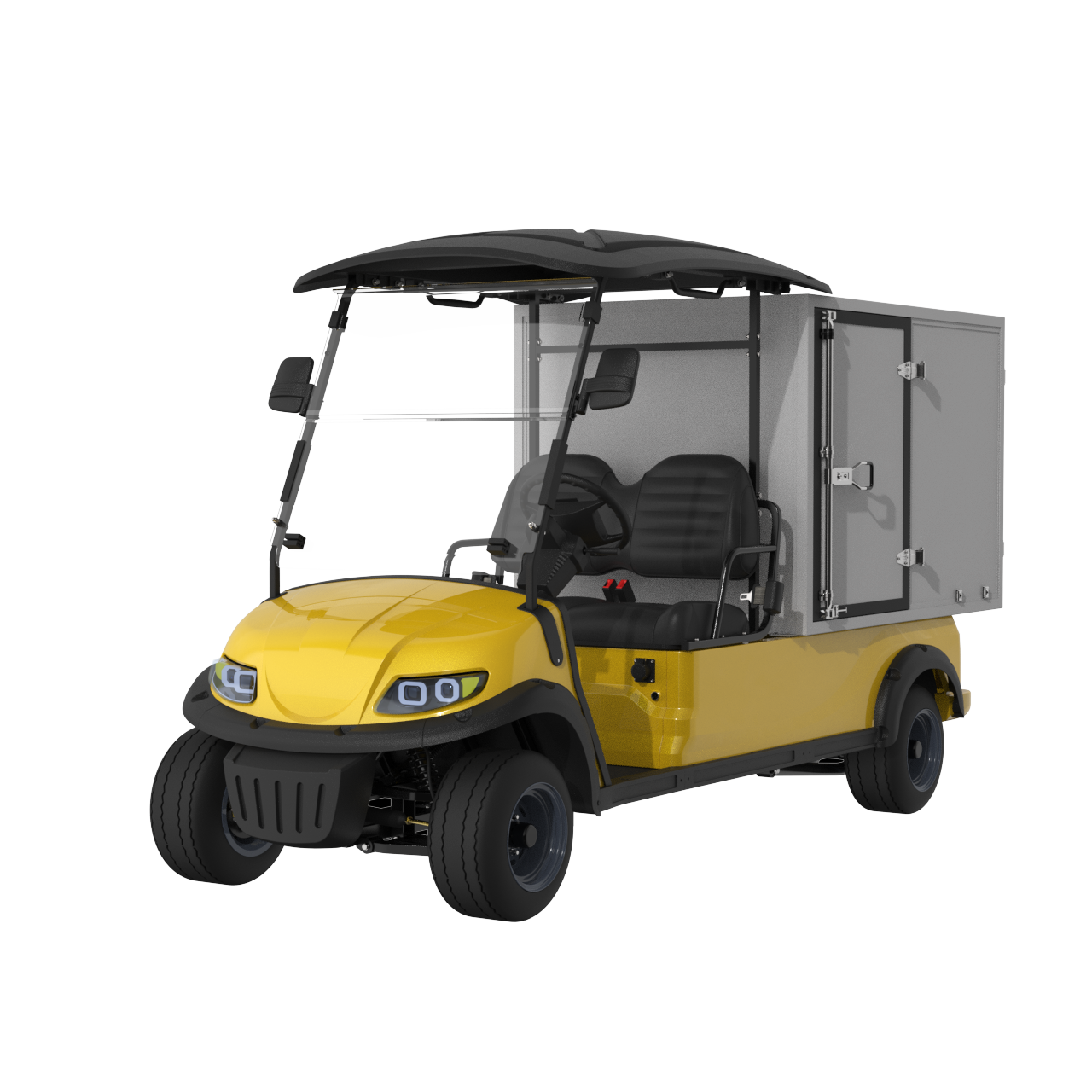Content Menu
● What Are Electric Towing Tractors?
● Environmental Benefits of Electric Towing Tractors
>> Zero Emissions for Cleaner Air
>> Reduced Carbon Footprint
>> Noise Pollution Reduction
● Operational and Economic Advantages Supporting Green Initiatives
>> Energy Efficiency and Cost Savings
>> Enhanced Productivity and Workflow
>> Integration with Smart Technologies
● Applications of Electric Towing Tractors in Green Business Practices
>> Industrial and Manufacturing Facilities
>> Sustainable Agriculture
>> Airports and Large-Scale Events
>> Ports, Railways, and Logistics Hubs
● Technological Innovations Driving the Green Revolution
>> Advanced Battery Technology
>> Regenerative Braking Systems
>> Ergonomic and Safety Enhancements
>> Compact and Versatile Designs
● Economic and Sustainability Impacts on Business
>> Long-Term Cost Efficiency
>> Compliance with Environmental Regulations
>> Enhancing Corporate Sustainability Goals
● Durability and Maintenance in Harsh Environments
● Case Studies Highlighting Successful Implementation
>> Airport Ground Handling
>> Industrial Warehouse Operations
>> Agricultural Applications
● Conclusion
● FAQ
>> 1. What makes electric towing tractors more environmentally friendly than traditional models?
>> 2. How do electric towing tractors improve workplace safety?
>> 3. Can electric towing tractors be used outdoors and in harsh conditions?
>> 4. How does smart technology integration benefit electric towing tractors?
>> 5. What are the cost benefits of switching to electric towing tractors?
In today's rapidly evolving industrial landscape, sustainability and environmental responsibility have become top priorities for businesses worldwide. Electric towing tractors are emerging as a pivotal technology supporting green initiatives by combining operational efficiency with environmental benefits. This article explores how electric towing tractors contribute to greener business practices, highlighting their advantages, technological innovations, and real-world applications.

What Are Electric Towing Tractors?
Electric towing tractors are specialized vehicles designed to tow heavy loads such as trailers, carts, or equipment within industrial, agricultural, and commercial settings. Unlike traditional diesel or gasoline-powered tow tractors, electric models run on rechargeable batteries-commonly lithium-ion-producing zero tailpipe emissions and significantly reducing noise pollution.
Environmental Benefits of Electric Towing Tractors
Zero Emissions for Cleaner Air
Electric towing tractors produce no exhaust emissions, which means they do not emit carbon dioxide (CO2), nitrogen oxides (NOx), or particulate matter that contribute to air pollution and climate change. This is especially critical in indoor environments like warehouses, manufacturing plants, and food processing facilities, where air quality directly affects worker health and safety.
Reduced Carbon Footprint
By replacing diesel or gasoline-powered tow tractors with electric alternatives, businesses can drastically reduce their carbon footprint. For example, some electric tow tractors can eliminate 75 to 100 metric tons of greenhouse gases annually compared to traditional vehicles, showcasing the significant environmental impact these vehicles can have.
Noise Pollution Reduction
Electric towing tractors operate quietly, eliminating the disruptive noise associated with combustion engines. This quieter operation improves workplace conditions by reducing noise pollution, lowering operator fatigue, and enhancing communication among workers, thereby increasing overall productivity and safety.
Operational and Economic Advantages Supporting Green Initiatives
Energy Efficiency and Cost Savings
Electric towing tractors are more energy-efficient than their fuel-powered counterparts. Lithium-ion batteries provide longer run times and faster charging, reducing downtime and energy consumption. Regenerative braking systems convert kinetic energy back into electrical energy during deceleration, optimizing energy use and extending battery life. These features reduce operational costs by lowering fuel and maintenance expenses.
Maintenance costs also decline significantly because electric motors have fewer moving parts and do not require oil changes or exhaust system repairs. Maintenance savings can reach about 60% compared to gasoline or diesel tow trucks.
Enhanced Productivity and Workflow
Electric towing tractors offer high torque and smooth acceleration, enabling faster and safer towing of heavy loads. Their compact design and superior maneuverability allow them to navigate tight spaces and narrow aisles efficiently, reducing material transport times by up to 50% compared to forklifts or manual methods.
Additionally, many models can tow multiple trailers simultaneously, multiplying the volume of materials moved per trip and further improving operational throughput.
Integration with Smart Technologies
The integration of smart technologies such as GPS navigation, telematics, and IoT sensors is revolutionizing electric towing tractors. These advancements enable intelligent route planning, adaptive power management, and real-time diagnostics, which optimize energy consumption and reduce maintenance needs by up to 40%.
Smart electric towing tractors also support Industry 4.0 initiatives by enabling seamless data exchange with factory automation systems, enhancing precision and safety while reducing human labor costs.

Applications of Electric Towing Tractors in Green Business Practices
Industrial and Manufacturing Facilities
Electric towing tractors are widely used in warehouses, factories, and distribution centers to move raw materials, parts, and finished goods efficiently. Their zero emissions and quiet operation make them ideal for indoor use, improving air quality and worker comfort.
Sustainable Agriculture
The agriculture sector is a significant contributor to global greenhouse gas emissions, with traditional tractors playing a major role. Electric towing tractors are helping to change this dynamic by offering zero-emission alternatives that maintain productivity while reducing environmental impact. Companies like Monarch Tractor are empowering farms and municipalities with smart electric tractor solutions that address labor shortages, reduce exposure to harmful chemicals, and improve air quality. These tractors are versatile, used across vineyards, dairy farms, airports, and solar farms, demonstrating broad applicability in sustainable agriculture.
Municipalities such as the City of Berkeley have adopted electric tractors for ground maintenance, recognizing their ability to reduce emissions equivalent to hundreds of miles driven by passenger cars. This transition reflects a growing trend among cities to improve local air quality and meet environmental goals.
Airports and Large-Scale Events
Airports use electric towing tractors for aircraft ground handling and baggage transport, benefiting from reduced fuel consumption, lower emissions, and quieter operations. These tractors also enhance safety with GPS-based navigation and adaptive towing systems, improving operational efficiency in complex environments.
Ports, Railways, and Logistics Hubs
Electric towing tractors are increasingly deployed in ports and rail yards to move containers and cargo. Their robust battery capacity supports long shifts, and their zero emissions help these often densely populated and regulated environments meet stringent environmental standards.
Technological Innovations Driving the Green Revolution
Advanced Battery Technology
Modern electric towing tractors utilize lithium-ion batteries with high energy density, rapid charging capabilities, and extended lifespans. Battery management systems optimize charging cycles, prevent overcharging, and monitor battery health, ensuring reliable performance and minimizing environmental impact from battery disposal.
Regenerative Braking Systems
When operators apply brakes, electric motors act as generators, converting kinetic energy back into electrical energy stored in the battery. This technology extends battery life, improves energy efficiency, and reduces the frequency of recharging, contributing to lower operational costs and environmental impact.
Ergonomic and Safety Enhancements
Electric towing tractors are designed with operator comfort and safety in mind. Features include adjustable seats, intuitive controls, automatic braking systems, emergency stop buttons, and electronic stability control. These reduce operator fatigue and accident risks, promoting a safer workplace.
Compact and Versatile Designs
The compact size and tight turning radius of electric towing tractors allow them to operate efficiently in confined spaces such as narrow warehouse aisles and crowded industrial yards. Their versatility supports a wide range of tasks, from towing heavy trailers to maneuvering delicate cargo.
Economic and Sustainability Impacts on Business
Long-Term Cost Efficiency
Although the initial purchase price of electric towing tractors can be higher than traditional diesel models, the total cost of ownership is lower due to reduced fuel consumption, less frequent maintenance, and longer vehicle lifespan. Many regions also offer tax incentives and subsidies for electric vehicle adoption, further improving financial viability.
Compliance with Environmental Regulations
Businesses face increasing regulatory pressure to reduce emissions and improve workplace safety. Electric towing tractors help companies comply with strict environmental standards, avoid penalties, and enhance their corporate social responsibility profiles.
Enhancing Corporate Sustainability Goals
By adopting electric towing tractors, companies demonstrate commitment to sustainability, appealing to environmentally conscious consumers, investors, and partners. This can improve brand reputation and open new market opportunities aligned with green business practices.
Durability and Maintenance in Harsh Environments
Electric towing tractors are engineered to withstand harsh industrial and outdoor conditions. Many models feature sealed electronics and corrosion-resistant materials to ensure reliability in wet, dusty, or cold environments. Their electric motors have fewer moving parts than combustion engines, reducing wear and tear and minimizing downtime.
Proper operator training is essential to maximize durability and efficiency. Training covers safe towing practices, recognizing warning indicators, proper battery charging and handling, routine inspections, and adherence to manufacturer maintenance schedules. Using smart chargers that balance battery cells and prevent overcharging extends battery life. Planning towing routes to minimize unnecessary travel and avoiding overloading also protect the equipment.
Case Studies Highlighting Successful Implementation
Airport Ground Handling
A major airport partnered with a ground handling company to trial electric towing tractors for baggage and cargo transport. The tractors operated for up to 7 hours on a single charge, reducing operational costs by nearly 60% and cutting carbon emissions substantially. The quiet operation also improved the airport environment for staff and travelers.
Industrial Warehouse Operations
A large manufacturing facility replaced diesel tow tractors with electric models, resulting in a 50% reduction in material handling time and a significant improvement in indoor air quality. Maintenance costs dropped sharply, and the facility achieved its sustainability targets ahead of schedule.
Agricultural Applications
Farms deploying electric towing tractors reported lower fuel expenses, reduced noise disturbance for livestock, and improved worker health due to zero exhaust emissions. The tractors' ability to integrate with precision farming technologies further enhanced operational efficiency.
Conclusion
Electric towing tractors are a transformative technology that supports green initiatives in business by combining environmental sustainability with enhanced operational efficiency. Their zero-emission operation, noise reduction, and integration with smart technologies help companies reduce their carbon footprint, comply with environmental regulations, and improve workplace conditions. Economically, they offer significant savings in energy and maintenance costs while boosting productivity through faster, safer material handling. As industries increasingly prioritize sustainability, electric towing tractors will play a vital role in shaping a cleaner, more efficient future.

FAQ
1. What makes electric towing tractors more environmentally friendly than traditional models?
Electric towing tractors produce zero tailpipe emissions, reducing harmful pollutants like CO2 and NOx. They also operate quietly, reducing noise pollution, and use energy-efficient lithium-ion batteries, which lower overall carbon footprints compared to diesel or gasoline-powered tractors.
2. How do electric towing tractors improve workplace safety?
By eliminating exhaust fumes, electric towing tractors improve indoor air quality, protecting workers from respiratory hazards. Their quiet operation reduces noise-induced stress and fatigue, and smart technology integration enhances operational safety through precise control and real-time monitoring.
3. Can electric towing tractors be used outdoors and in harsh conditions?
Yes. Many electric towing tractors are designed with sealed electronics, corrosion-resistant materials, and weatherproof components, enabling reliable operation in cold storage, wet areas, and outdoor environments.
4. How does smart technology integration benefit electric towing tractors?
Smart technology enables features like GPS route optimization, adaptive towing force, telematics for fault diagnosis, and real-time data exchange with factory automation systems. These improve energy efficiency, reduce maintenance, enhance safety, and support Industry 4.0 initiatives.
5. What are the cost benefits of switching to electric towing tractors?
Electric towing tractors reduce fuel costs by up to 80% and maintenance costs by about 60% compared to traditional fuel-powered models. Longer battery life, faster charging, and fewer mechanical parts contribute to lower total cost of ownership and higher productivity.




















































